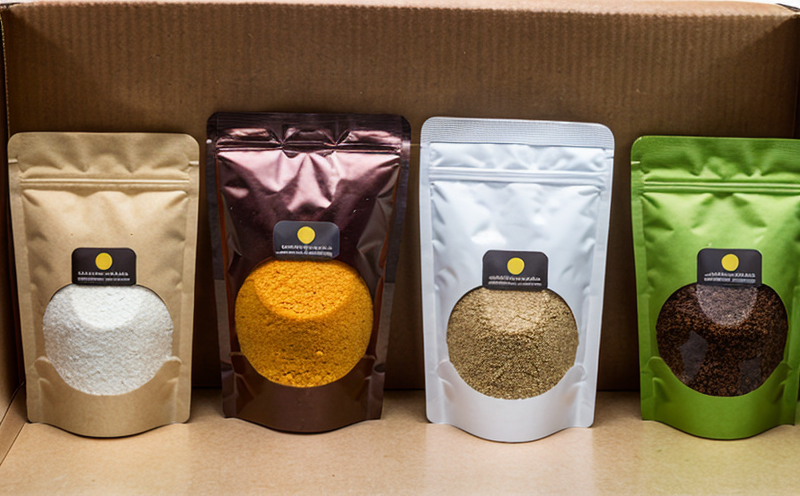Real-Time Shelf Life Testing in Food Contact Materials
In today’s competitive market, ensuring food safety and quality is paramount. Consumer trust and regulatory compliance depend on accurate shelf life testing of food contact materials (FCMs). Real-time shelf life testing provides critical insights into the stability and integrity of FCMs over time, allowing manufacturers to optimize product formulations and packaging designs for extended shelf life.
Shelf life testing involves monitoring changes in chemical composition, physical properties, microbial growth, and sensory attributes under controlled environmental conditions. This process helps identify potential degradation mechanisms that could compromise food safety or quality during storage and distribution. By leveraging real-time technology, we can capture data continuously as the FCM ages, offering a more precise understanding of its lifespan.
The testing begins with selecting appropriate specimens representative of the final product. These specimens undergo rigorous preconditioning to simulate real-world conditions such as temperature, humidity, and light exposure. Once prepared, they are exposed to controlled environments that mimic storage scenarios in various geographic regions. Our state-of-the-art facilities employ advanced analytical instruments capable of detecting minute changes in material properties.
Throughout the testing period, we collect extensive data points on multiple parameters including chemical composition via Fourier Transform Infrared Spectroscopy (FTIR), physical property measurements using Dynamic Mechanical Analysis (DMA), microbial growth assessment through Quantitative Real-Time PCR (qPCR), and sensory evaluations by panelists. This comprehensive approach ensures no aspect of material degradation goes unnoticed.
Our laboratory adheres to international standards such as ISO 11299-1:2016 for determining migration from plastic materials into foodstuffs, ASTM D884-15 for evaluating the tensile properties of plastics, and EN 12358 for assessing packaging integrity. These guidelines provide clear criteria against which our results are validated.
Real-time shelf life testing is essential not only for maintaining regulatory compliance but also for enhancing product performance in the market. By understanding how FCMs behave over time, manufacturers can make informed decisions about ingredient selection, processing methods, and packaging design that extend shelf life without sacrificing safety or quality.
| Applied Standards | Description |
|---|---|
| ISO 11299-1:2016 | Determines migration from plastic materials into foodstuffs under specified conditions. |
| ASTM D884-15 | Evaluates the tensile properties of plastics, providing insights into mechanical strength and durability. |
| EN 12358 | Aims to ensure that packaging maintains its integrity throughout the supply chain. |
This real-time testing service equips our clients with valuable information needed to protect public health while optimizing business operations. It supports both new product development and existing portfolio enhancement projects, ensuring compliance with stringent regulatory requirements worldwide.
Applied Standards
- ISO 11299-1:2016: This standard specifies methods for determining the migration of substances from plastic materials into foodstuffs under specified conditions. It helps ensure that FCMs do not leach harmful chemicals into contact foods.
- ASTM D884-15: Used to measure the tensile properties of plastics, which are crucial for understanding material performance and durability over time.
- EN 12358: Focuses on maintaining packaging integrity throughout the supply chain, ensuring that FCMs remain intact until they reach consumers.
These standards form the backbone of our shelf life testing protocols, providing robust frameworks for evaluating material performance and safety.
Why Choose This Test
Conducting real-time shelf life testing offers several advantages over traditional batch testing methods. Continuous monitoring allows us to detect subtle changes in FCMs that may not be apparent through occasional sampling alone. Early detection of potential issues enables proactive interventions, reducing the risk of recall or non-compliance events.
From a business perspective, this service helps companies stay ahead of regulatory trends and consumer expectations regarding product safety and sustainability. By demonstrating commitment to quality assurance, firms build stronger brand reputations and foster customer loyalty. Additionally, successful shelf life testing can lead to reduced costs associated with waste management and improved resource utilization.
Our real-time shelf life testing service is particularly beneficial for innovators in the food contact materials sector seeking differentiation through longer-lasting products or eco-friendly solutions. It provides valuable data that supports claims about extended shelf lives or recyclability, which are increasingly important factors for modern consumers.





